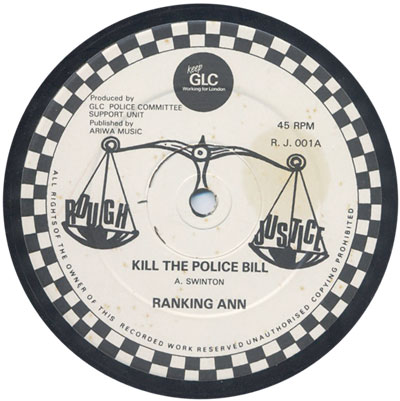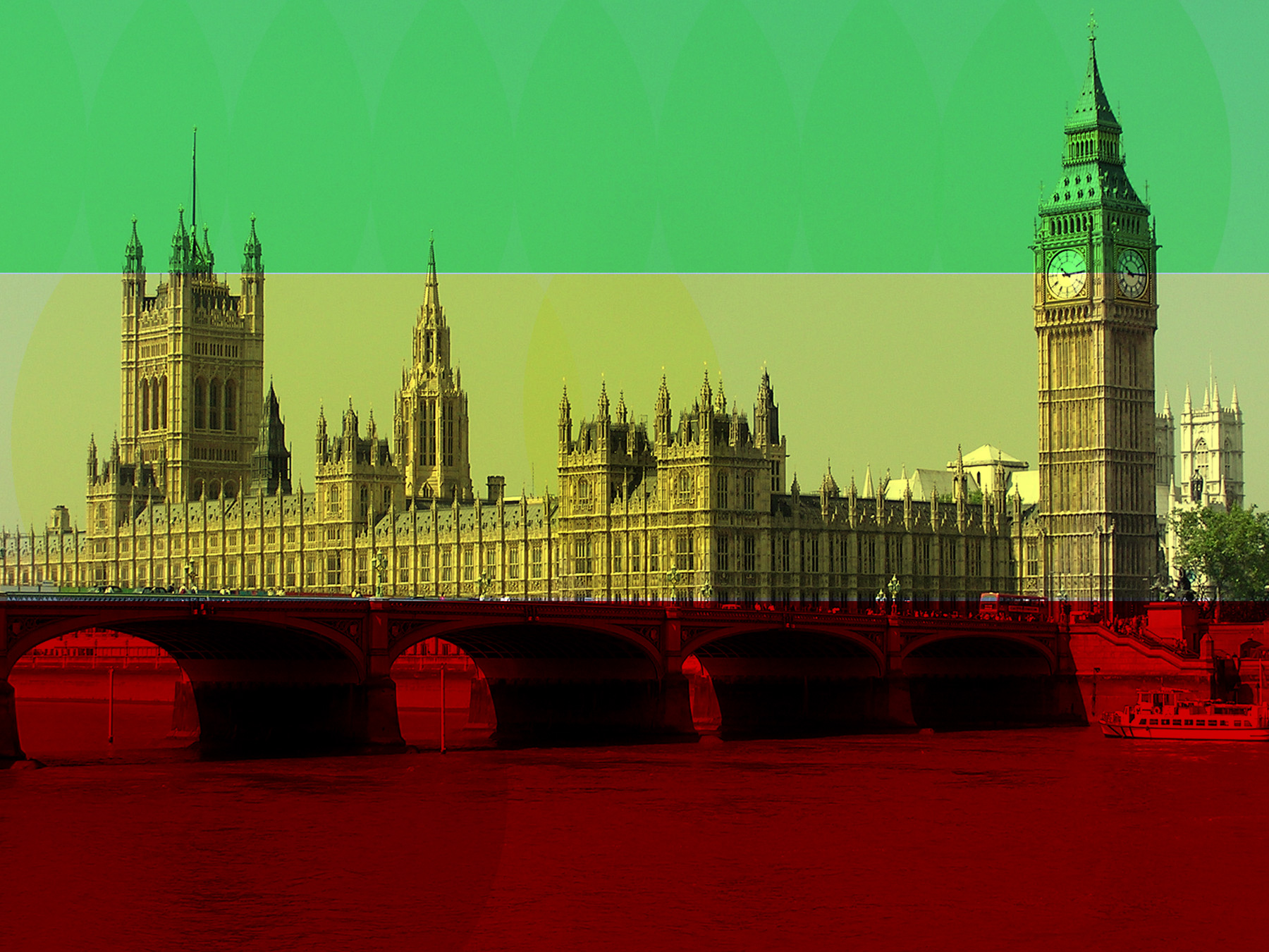My article in Datacide touches on the gradual acceptance of soundsystem culture in the UK over the last 60 years.
I’ve now discovered that this process can be illustrated just as well by checking Hansard, the record of discussions in the UK Parliament.
It seems that in the seventies and eighties, reggae was only ever discussed by our ruling class in connection with social disturbance or disorder. Gradually it becomes part of daily life – even for Lords and MPs!
Reading Hansard is probably not your idea of fun if you’re checking this blog, but the quotes below are outrageous, ridiculous and hilarious by turns. It is impossible not to laugh when you imagine them said in absurd posh plummy voices:
“Take a situation where a young reporter, addicted to purple prose as young re-porters tend to be, who was sent by an evening newspaper to cover the Notting Hill Carnival this year in the early hours, when everything was peaceful. He might have knocked out a piece along these lines.
‘Eyes glazed and half-closed, fingers snapping, feet tapping, the Caribbean crowd swayed rhythmically to the insistent pulsating beat of reggae.’
This could possibly have been insulting to one or two—not many, but one or two—West Indians involved. It might have implied that they were more likely to be carried away by the jungle beat, if you like, than the European population.
Had that report been published in the early editions of the evening newspaper, before the muggings, the rioting and the injuries to the police which followed, and had it got into the hands of ill-natured people who were in any case biased already against the West Indian population, this could be said, quite without any intention whatsoever, to stir up latent antagonism or hostility towards them. This is precisely the sort of thing I am trying to avoid.”
Lord Monson
October 1976 (Race Relations Bill)
“I have sought this debate because of a West Indian party which took place in my constituency over the Christmas holidays. It began on 22 December, the Sunday before Christmas, and continued until 2 January, a period of 11 days. During that time, the harassment, noise and fear that my constituents had to endure was utterly intolerable. The nights were the worst.
The form was that people would start to arrive at about 9 pm from all parts of Birmingham but also from London, Bristol and the North. They came in cars and in vans, usually with hi-fi equipment blasting out reggae music from their transport, horns blaring as they cruised up and down the road looking for parking places. That went on all night, until 7.30 in the morning, and it went on every night.
I have visited that street many times and have seen the house at which these parties took place. It is a very small house. On the ground floor is just one window and the front door. Above is just one large window and a very tiny window over the door. It is a terraced inner-city house. Inside that house were crammed 200 people at any one time, although there was a good deal of coming and going.
Those who attended paid £2 to go in. There is plenty of evidence from people who saw the money changing hands. I do not think that much alcohol was drunk, although one West Indian who was at the party said that some was drunk. However, many observers say that marijuana was being smoked—and quite a quantity, because the smell outside was unmistakable.
The noise of the disco troubled the near-neighbours, as well it might, because the sound was turned up very high, but it was the rowdy behaviour in the street that was the main problem. There was a seething mass of people, 99 per cent. of whom were of the Rastafarian type, who can look a little frightening. Certainly their numbers were frightening.
The noise these people made was terrifying. They shouted at each other. One resident who tried to park his car in a space which was apparently reserved for a party-goer was intimidated and very frightened. Another of my constituents who went to ask whether the noise could please be turned down a little had a knife pulled on him. No doubt thinking that discretion was the better part of valour, he ran away with the man with the knife after him and only just got inside his house in time, where he slammed and bolted the door. He was very frightened.”
Mrs. Jill Knight (Birmingham, Edgbaston)
February 1981: All-Night Parties
“Rastafari is more than just a religion: it is also a culture which expresses itself in many ways, not least in reggae music. It gives cultural identity to some of those who reject both traditional West Indian society and contemporary British urban values.”
Lord Hylton
February 1982: Brixton Disorders: The Scarman Report
“The Commissioner of Police of the Metropolis tells me that on the evening of 6 January 3,000 people attended a reggae concert in aid of Ethiopian famine relief at the Academy, Stockwell road, London SW9. At about 11 pm two police officers attempted to arrest a man who had been detained inside the building by security staff on suspicion of theft and being armed.
A number of people intervened to prevent the arrest and the man escaped into the auditorium. The two officers gave chase, but were set upon by members of the audience. One officer received stab wounds to the thigh whilst the other was knocked unconscious by a blow from a bottle. Police reinforcements quickly arrived on the scene and dealt with the disturbance. A further five officers sustained minor injuries. One person was arrested and charged with causing grievous bodily harm with intent.”
Mr. Giles Shaw (Pudsey)
January 1985: Disorder (Brixton)

“The Leader of the Opposition should dissociate himself from the violent attacks that are made persistently on the police by Labour councillors up and down the country.
He must denounce and, if possible, remove the block by some Labour councillors on policemen visiting schools. He must dissociate himself from the vast majority of GLC leaflets that depict the police as racists and oppressors of gays. He must get rid of any support in his party for the reggae record which has been sent round many youth clubs and which contains violent language directed against the police.”
Sir Eldon Griffiths (Bury St. Edmunds)
May 1986: Crime Prevention
[more on that record here – at least I assume it’s that one?]
“Many of us who worked on the shop floor or in the pits can tell Conservative Members that we went home, had our tea and fell asleep on the settee. We were so tired that we slept for an hour before having a couple of pints. We started work at 6 am and were too tired to go out at 11 pm to a disco to play reggae music and keep the street awake until all hours of the morning.”
Mr. Joseph Ashton (Bassetlaw)
March 1987: Corporal Punishment
“Does my right hon. Friend agree that it is extraordinary for Southwark, if it is so hard up, to spend £13,800 on a reggae concert for Black Solidarity day?”
Mr John Butterfill (Bournemouth West)
February 1988: Rate Limitation
“What the national curriculum does require, particularly at key stage 2, is a lot of specialised knowledge of music. It requires the teaching of notation and composing; it requires a quality of listening and appreciation of music that is really quite specialised and cannot be provided by just any teacher. The Minister would not fancy his hand at teaching a group of young children at key stage 2 ostinato, or to appreciate Stravinsky on the one hand and reggae on the other.“
Mr. Mark Fisher (Stoke-on-Trent, Central)
March 1993: Music and Library Provision
“Look at that block today. Several of the flats are boarded up, no doubt awaiting maintenance. I went there today and spoke to a lady who said that the flat next door to hers had been empty for four years. Other flats were occupied but had boarded-up windows. Paving stones were broken and dangerous, and litter and cans disfigured the courtyards. From some flats, where I am told squatters still live, came the sound of deafening reggae music.”
Mr. Peter Atkinson (Hexham)
January 1994: Housing
“I had a briefing from experienced officers in a police force who recently visited Jamaica to look at the controls on crack. They said that a reggae song on the local radio in downtown Kingston was urging dealers to go to Britain. The encouragement to come to London was the suggestion that The police don’t bang, the courts don’t hang and the sentence ain’t tang”.
The police certainly do not “bang” and our courts do not hang, but we have some very long sentences for drug dealing, and London ought not to be an attractive place for international drug dealers.”
The Minister of State, Home Office (Mr. David Maclean)
July 1994: Drug Use (Royal Commission)
[please help me find out what this record is]
“I am delighted to participate in the debate. Like many Conservative Members, I wish to register my own interest: when I was younger than 16, I was a smoker. To this day, I have never admitted it to my family. [Interruption.] I expect that they are not listening and watching this evening. My mother and father would not be very happy.
I have no idea why I took up smoking. I think it had more to do with the music that I listened to and the image I wished to identify with. I caught the tail end of the punk era. I was keen on ska music. As part of that overall image, smoking was de rigueur. I then became a new romantic. Smoking did not go with pastel pinks or pastel yellows. I took up smoking as a teenager and ended smoking while still a teenager. It was to do with my warped sense of fashion at that time.”
Mr. Jim Murphy (Eastwood)
April 2002: Smoking Bill
Lord Evans of Temple Guiting: “I am sure that, as regular listeners, all noble Lords will be familiar with Kiss FM’s format which, comprises, and fully reflects, the musical styles known as House, Garage, Soul, Soul/Jazz. Rap, Reggae, Ragga and Swing together with any developments of these and other related forms of dance music”.
Lord McNally: “My comment was due to the fact that I have a 13-year-old son. My difficulty is finding a place in the house where I cannot hear Kiss FM.”
Lord Evans of Temple Guiting: “The noble Lord should be generous and buy him a set of headphones. They do not cost much.”
May 2003: Communications Bill
[she’s being sarcastic] “A number of other simple adjustments would undoubtedly be great crowd pleasers. The Parliament Choir has been most co-operative. They have agreed to ditch Verdi’s “Requiem” this year in favour of a blast of reggae, jungle, hip hop and garage. Believe me, they will undoubtedly rise to the challenge; they are well up to it, as the younger generation would say.”
Ms Angela Billingham
November 2004: Address in Reply to Her Majesty’s Most Gracious Speech

Lord Evans ++ !!